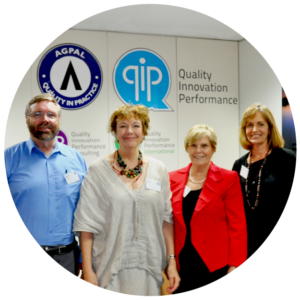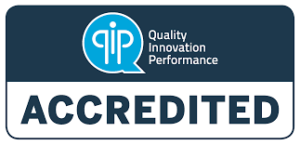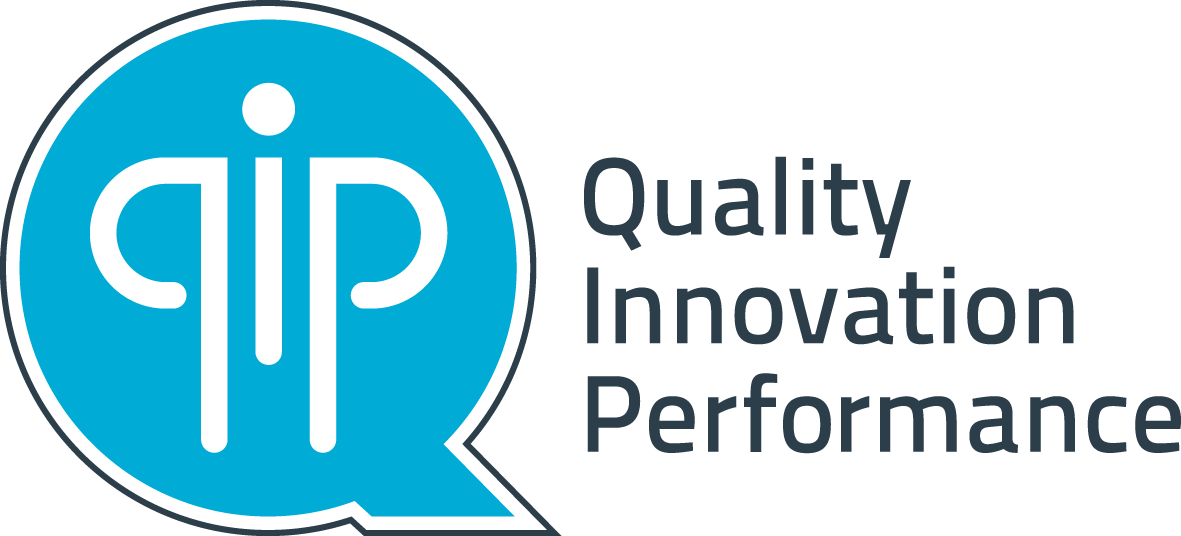Retirement village and aged care accreditation
Retirement village and aged care accreditation
Be confident in safe and quality operation, leading to positive outcomes for consumers
In 2017, 15% of Australians (3.8 million) were aged 65 and over; this is projected to grow steadily over the coming decades.
Retirement villages and aged care support and services, along with residents, family members and consumers are needing assurance in knowing they or their loved one will be safe and well cared for. Consumers can be confident that accredited retirement villages and aged care support and services are committed to safety, quality and positive outcomes for residents, while being inclusive to make sure residents feel welcome and understood in every possible way.
QIP has many accreditation options for providers to support their processes and reassure consumers. Options range from one to multi-accreditation packages of relevant standards frameworks to improve service delivery to best meet their community’s needs.
ARVAS Standards
Australian Retirement Village Accreditation Scheme
The Australian Retirement Village Accreditation Scheme (ARVAS) is the main accreditation scheme for retirement village and seniors housing operators in Australia. ARVAS is co-owned by two organisations Property Council of Australia (Property Council) and Aged & Community Care Providers Association (ACCPA).
QIP is the authorised accreditation provider for ARVAS, on behalf of the Property Council and ACCPA. This is due to our previous experience as assessment provider for the International Retirement Community Accreditation Scheme (IRCAS).
The ARVAS Standards are designed to work directly with the Retirement Living Code of Conduct, which is the sector’s self-assessment tool. Any organisation wishing to apply for accreditation under ARVAS must be an active subscriber to the Retirement Living Code of Conduct.
ARVAS replaced two previous industry schemes, IRCAS and the Lifemark Village Scheme. As part of ARVAS' development, an entirely new set of national standards has been devised, to reflect the various elements of a resident’s experience within a retirement village and evolving service offerings within villages.
What are the ARVAS Standards?
The ARVAS Standards are applicable across Australia to most retirement villages, and include seven quality areas:
- Standard 1 – Community Management
- Standard 2 – Human Resource Management
- Standard 3 – Resident Entry & Exit
- Standard 4 – Resident Engagement & Feedback
- Standard 5 – Community Environment, Services & Facilities
- Standard 6 – Safety & Security
- Standard 7 – Resident Care
Providing care for LGBTQIA+ communities
Older Australian’s who identify as a member of the lesbian, gay, bisexual, trans and gender diverse, queer, intersex, asexuals and/or allies and other identities (LGBTQIA+) community have lived through a history of suffering, stigma, discrimination, criminal charges, family rejection and social isolation just for being who they are.
It is important that these communities know that they are welcomed and understood when choosing a retirement village or engaging with aged care support and services.
The Rainbow Tick Standards and accreditation program is a voluntary program by Rainbow Health Australia, that aims to address the service inequalities for members of our LGBTQIA+ communities. The Standards assist organisations to understand and respond to the needs of their LGBTQIA+ consumers.
Rainbow Tick accreditation supports retirement villages and aged care support services in demonstrating a commitment to valuing diversity. It ensures inclusive practice while identifying that the organisation provides a more positive service experience for members of the LGBTQIA+ community.
Aged care accreditation in Australia
Aged care support and services have the option to achieve aged care accreditation for the whole of an organisation against the QIC Health and Community Services (QIC) Standards.
The QIC Standards support service providers and organisations to improve consumer and community engagement, diversity and cultural appropriateness, management systems, governance and service delivery while committing to a cycle of continuous quality improvement.
Achievement of QIP accreditation against the QIC Standards takes a commitment to quality improvement, teamwork, a drive to build organisational capacity and a focus on enhancing provision of service and care for consumers. There are five QIC Standards:
- Governance
- Management systems
- Consumer and community engagement
- Diversity and cultural appropriateness
- Service delivery
Some aged care support services also offer clinical services, which would benefit from accreditation against the NSQHS Standards and the Diagnostic Imaging Accreditation Scheme.
How QIP supports organisations
Tailored support
QIP has trained QIP Client Liaison Teams on hand to answer any questions clients may have about their accreditation, certification or verification. With expert knowledge of each of the standards or frameworks, evidence requirements and the self-assessment process, QIP’s Client Liaison Teams provide clients with on-going advice throughout their cycle.

QIP’s accreditation hub
The QIP accreditation hub is an online platform tailored to each client’s individual accreditation timelines and framework requirements. It includes a personalised action plan, a resource library and a number of other features to support clients throughout their accreditation journey.
Access to AccreditationPro
QIP’s online self-assessment software, known as AccreditationPro, streamlines accreditation preparation by helping clients determine their organisation’s compliance with an applicable set of Standards.

Access to online resources and education
QIP’s online Education and Resource Library, provides clients with access to a range of practical, informative and customisable resources to support organisations in complying with the relevant industry Standards.
Regular news and e-newsletters
Stay up-to-date with industry and organisational news, helpful tips and your standards information with QIP communications including periodical e-newsletters advising of any changes to processes, systems, standards or evidence requirements are released.
Highly trained assessment teams
QIP’s Assessors are highly trained and qualified peer assessors who work across the Australian health, community and human services sectors. Our team will share their knowledge and support organisations through the accreditation assessment.

Celebrating the achievement of accreditation
Achieving QIP accreditation takes dedication, team work and a commitment to continuous quality improvement. When organisations achieve their accredited, certificated or verified status, they are provided with their own 'Promotional Toolkit' filled with a number of materials to celebrate and promote this achievement.
The QIP Accredited Symbol is one way consumers and local community can be reassured that an organisation has been recognised for their commitment to delivering a safe and quality-focused service.


